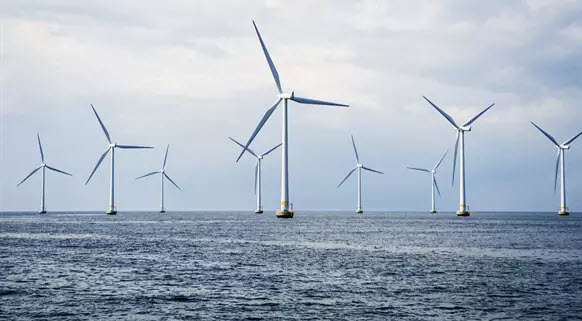
Some of the world’s largest wind-turbine producers expect another tough year ahead.
Surging commodity prices and supply-chain headwinds are set to last into next year, according to Vestas Wind Systems A/S and Siemens Gamesa Renewable Energy SA. That’s making it harder for a business that’s so key to delivering the world’s climate goals to keep profitable.
The challenges come at an awkward time. Just as world leaders are gathering in Glasgow, Scotland, to try to hash out ambitious plans to avoid the worst consequences of global warming, installing more renewable sources of energy is becoming increasingly difficult and expensive.
“We are operating in a very difficult environment with challenging short-term market dynamics and low visibility on supply chain normalization,” said Siemens Gamesa Chief Executive Officer Andreas Nauen. “However, the current difficulties should not overshadow the bright future for wind energy, driven by its role in the decarbonization of our planet.”
The turbine industry is facing adversity at nearly every point in the supply chain. Components are hard to get, there isn’t enough shipping capacity to move finished products, and in some markets workers can’t get to building sites because of restrictions to contain the global pandemic.
“Everyone’s fighting against everyone to get both the raw materials and the components, which leads to very adverse price stability,” Vestas’s Chief Executive Officer Henrik Andersen said in an interview earlier this week.
Commodity prices surged this year as global economies rebounded from the pandemic, boosting the price of everything from oil to natural gas and steel. The metal is the single biggest input for manufacturers, making up about 84% of a turbine’s weight.
Vestas lowered its earnings outlook on Wednesday. It now expects full-year margin on earnings before interest and tax and before special items of 4%. That’s down from previous range of 5% to 7% and about half of what the company expected at the beginning of the year.
On Friday, Siemens Gamesa posted a second year of losses. The world’s largest maker of offshore wind turbines lost 627 million euros ($725 million) in the year ended in September. That’s on top of a loss of 918 million euros a year earlier. Still, the company expects profits to recover next year, with margins forecast to turn positive.
Shares in both companies plunged this week, adding to billions of dollars already shaved off their market value this year.
“The market is expecting the situation will change and go back to normal but we truly don’t know when this will happen,” Nauen said in a call with analysts on Friday.
For Siemens Gamesa, the impact has been particularly acute. Even before the current slate of problems, the company had already been trying to turn its struggling business around. It appointed Nauen as chief executive last year as part of an overhaul meant to return its onshore turbine business to profitability.
This isn’t the first time the wind turbine business has faced difficulties. Companies have been locked in stiff competition as project developers fought to cut costs in order to win auctions to build wind farms.
